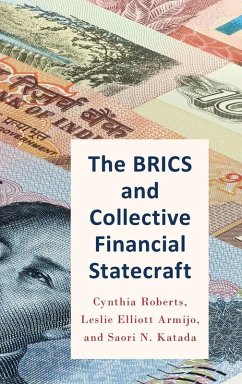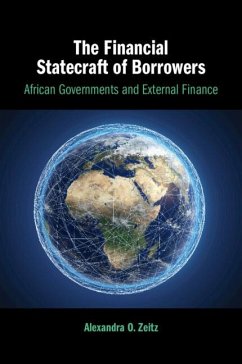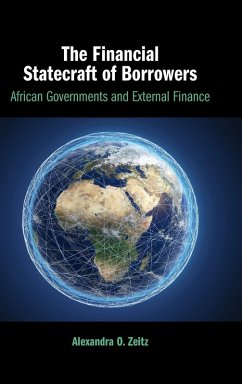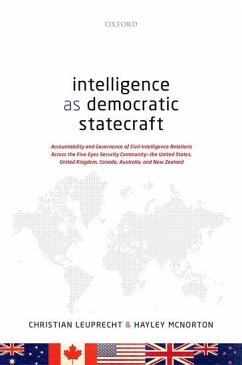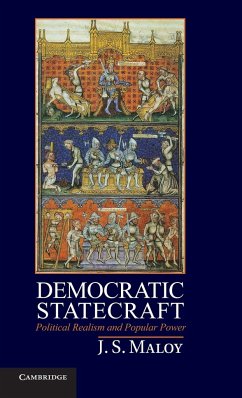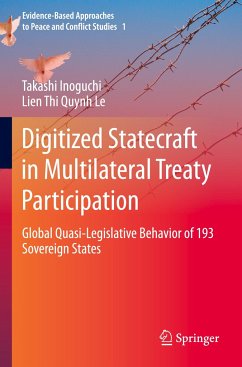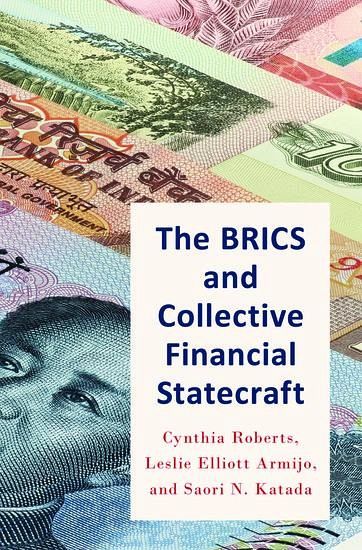
Brics and Collective Financial Statecraft

PAYBACK Punkte
26 °P sammeln!
In the early 21st century, five rising powers (Brazil, Russia, India, China, and South Africa) formed an exclusive international club, the BRICS. Although not extreme revisionists, the BRICS recognize an ongoing global power shift and contest the West's pretensions to permanent stewardship of the existing economic order. Together they exercise collective financial and monetary statecraft to achieve larger foreign policy goals. The BRICS share common resentments-of U.S. dominance of the global financial system, of playing junior roles in economic governance, and of serving as frequent targets o...
In the early 21st century, five rising powers (Brazil, Russia, India, China, and South Africa) formed an exclusive international club, the BRICS. Although not extreme revisionists, the BRICS recognize an ongoing global power shift and contest the West's pretensions to permanent stewardship of the existing economic order. Together they exercise collective financial and monetary statecraft to achieve larger foreign policy goals. The BRICS share common resentments-of U.S. dominance of the global financial system, of playing junior roles in economic governance, and of serving as frequent targets of financial sanctions. They also share common objectives, such as obtaining greater financial autonomy and influence within the Bretton Woods institutions. Their financial statecraft ranges from pressure for the internal reform of international organizations and markets to operating outside the system through the creation of both new multilateral institutions and opportunity structures in international financial markets. To the surprise of many observers, the joint actions of the BRICS have been largely successful. The BRICS' future depends not only on their bargaining power and ability to successfully adjust to market shifts, but also on their ability to overcome domestic impediments to sustainable economic growth, which is the ultimate basis for their international influence.





